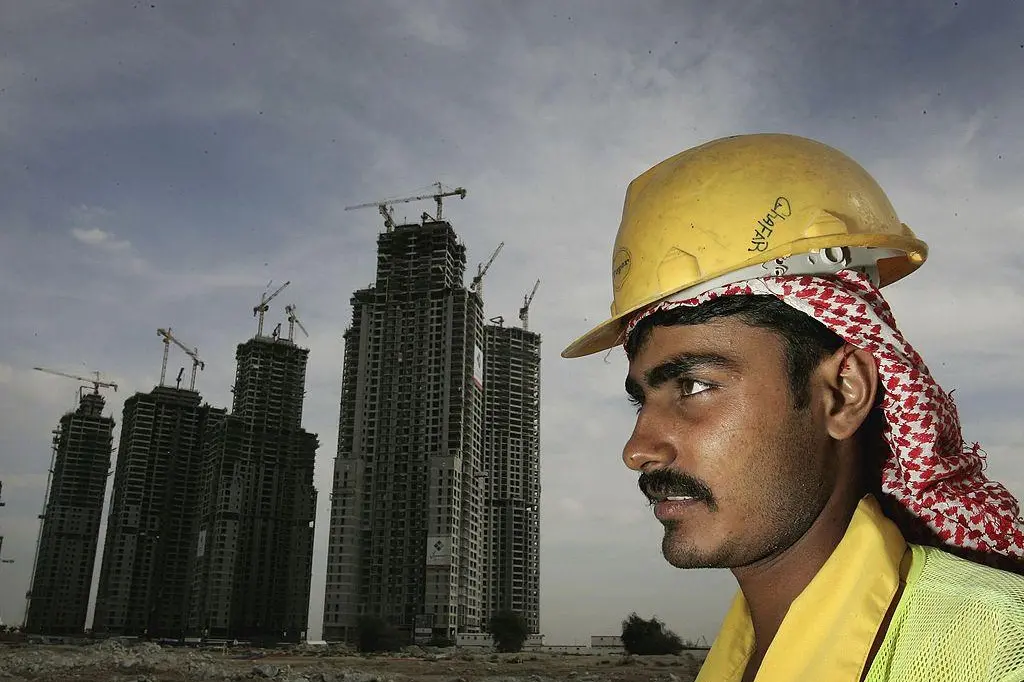PHOTO
The UAE has emerged as a leader in introducing innovative and path-breaking reforms across various sectors of the economy. These are aimed at improving the quality of life of residents which encourage participative nation-building. Recently, in a move that deftly boosted investor confidence, the federal government announced its decision to issue 10 year-long residence visas to expatriate business leaders, technocrats, entrepreneurs and experts.
While the government aims to develop a hospitable environment for businesses to grow and sustain themselves, it also strives to augment living conditions of people whose role is vital in sustaining business environments.
In this context, reforms for blue-collar workers focus on their welfare, with improvements in their safety, living and working standards.
These measures were initiated a decade ago in 2009 through a cabinet decision aimed at setting minimum standards for various aspects related to a worker's daily life such as accommodation, travel and transportation, health, hygiene and safety.
The decision brought about changes in their lives and made it mandatory for employers to provide workers with accommodations in concrete buildings. They were required to provide adequate ventilation and air-conditioning, lighting, fire-fighting equipment, emergency exits, sanitation facilities in dining areas, kitchen, laundry, water and power supply, waste disposal mechanisms and handling and management of elements posing public health hazards in accordance with the standards set forth.
Further, the cabinet decision also came up with standards on transportation and vehicle safety. This required vehicles to be air conditioned with safety features for easy entry and exit, sufficient interior and exterior lights. The plan was to provide safe transportation at any time of the day and be subject to annual inspections. Provisions pertaining to 'Public Health Requirements' and 'Health and Safety Management' were also set forth.
Reforms for workers have gained traction since 2016 when a ministerial resolution made it mandatory for employers to provide free accommodation for workers earning less than Dh2,000.
It is noteworthy that foundations for such reforms were laid long back, as the Federal Law No (8) of 1980 on Employment had made it mandatory for an employer to provide food supplies and recreation and sports facilities to workers employed in areas remote from towns.
The idea for reforms has now graduated to the concept of happiness as the Ministry of Human Resources & Emiratisation (MOHRE) announced new 'Happiness Buses' for workers. Workers aboard the Happiness Buses (Hafelat Al Saada) will have access to Wi-Fi connection, cold drinking water, air conditioning, first-aid kits and advanced safety systems.
Another reform measure from 2009 was the introduction of a wage protection system (WPS) whereby all employers registered with MOHRE were required to subscribe to the WPS and pay the wages of their employees through the system, on due dates. This ensured punctual payment of wages to workers.
In view of the harsh weather conditions in the summer, a Ministerial Decree of 2015 was introduced to regulate the daytime working hours of workers, whereby a ban was imposed on work from 12:30 pm to 3:00 pm.
To provide easy access to grievance redressal and dispute resolution, the judicial authorities in Abu Dhabi have also introduced a mobile court to handle disputes between workers and their employers. These courts have been effective for cases involving large groups of people living in one area, such as workers' accommodation, or the ones that involve people who find it difficult to attend court, like 'people of determination'.
The abolishment of the mandatory bank guarantee for labour recruitment by the UAE Cabinet in 2018 was another welcome measure. Previously, it was necessary for employers to deposit Dh3,000 as bank guarantee to secure a minimum fund for the worker in the event of the employer's liquidation. However, it was realised that such a sum would be meagre in consideration of a worker's efforts. With the introduction of the new insurance scheme employers are required to secure amounts of up to Dh20,000 for the workers during adverse conditions. This creates a more realistic safety net as compared with the one in the previous scheme.
The many welfare plans for blue-collar workers are innovative and result-oriented in their own way. They have been formulated upon proper identification of problems, and this speaks volumes of the untiring efforts of the UAE government in improving the lives of people who come to live and work in the country.
- Ashish Mehta is the founder and managing partner of Ashish Mehta & Associates, Dubai
Copyright 2019 Khaleej Times. All Rights Reserved. Provided by SyndiGate Media Inc. (Syndigate.info).





















